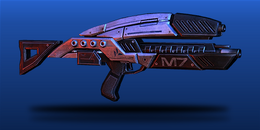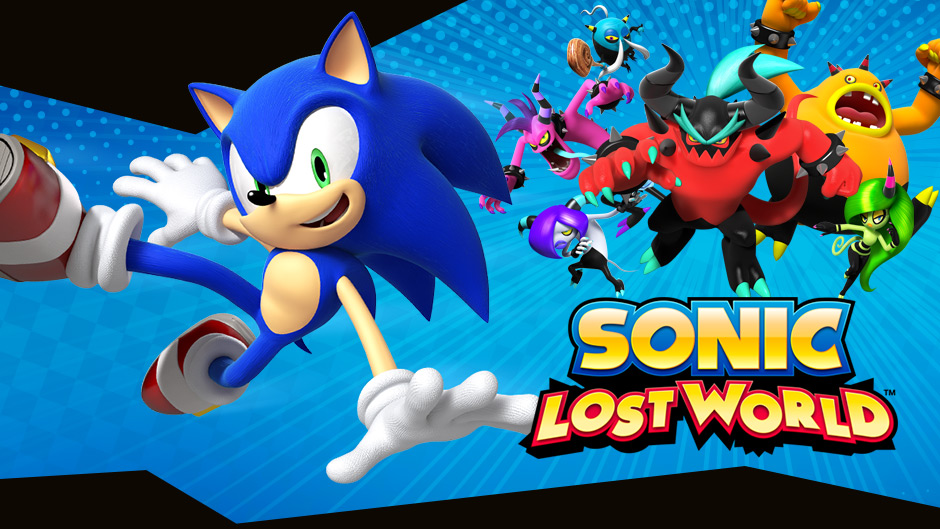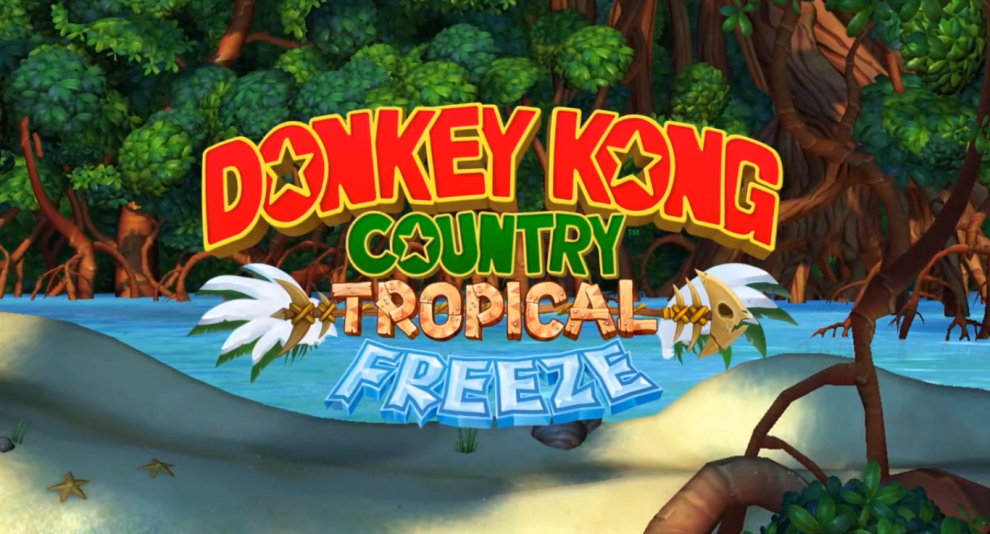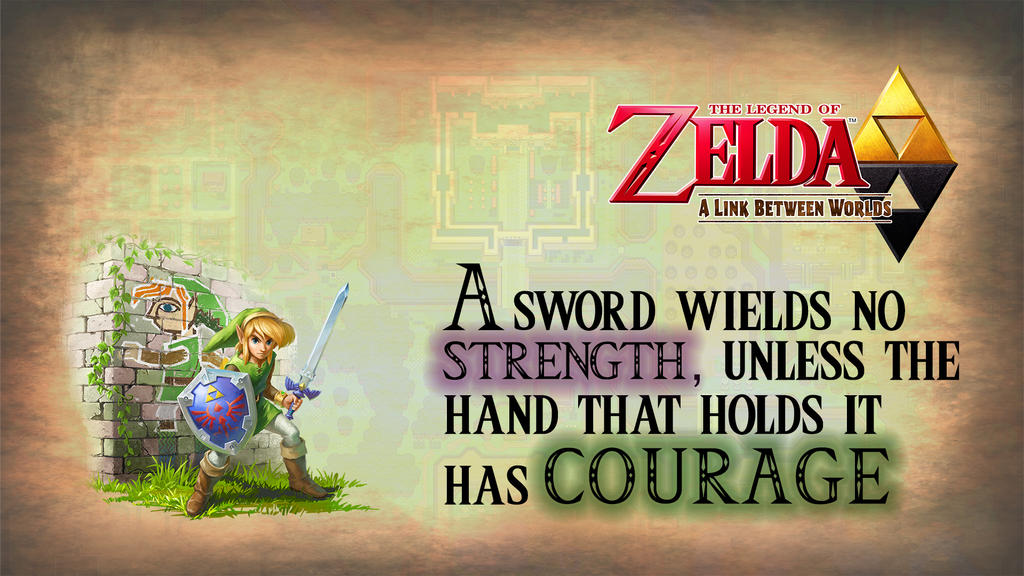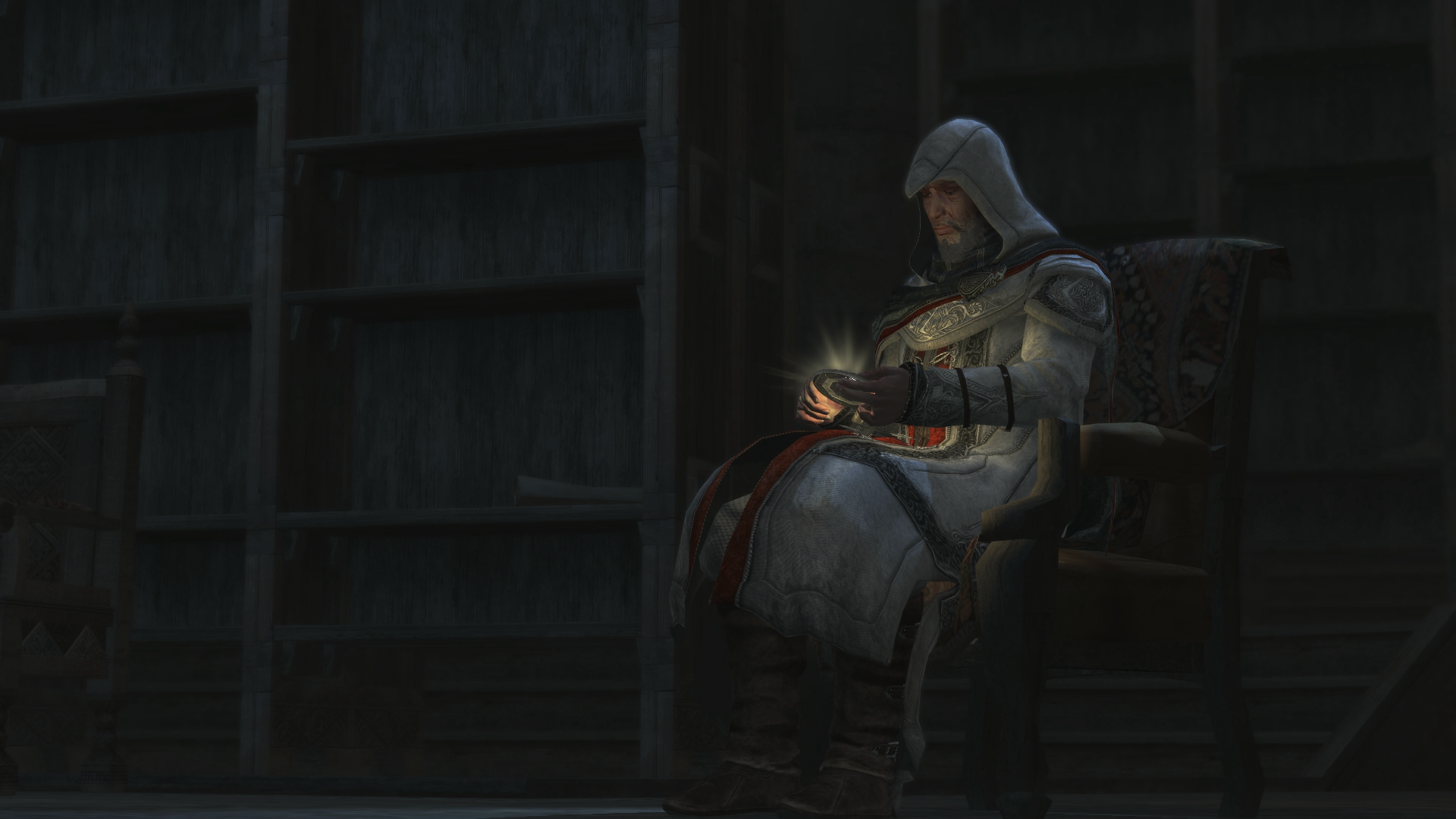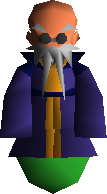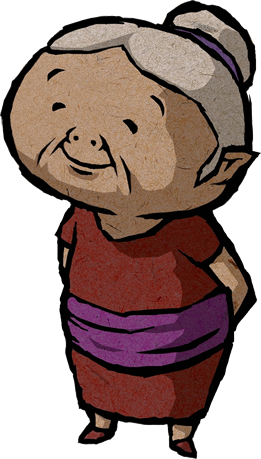Top Ten Tuesday 35
My Top Ten Video Game Developers of
the 90s
Disclaimer: There are many top ten lists
but this one is mine, if you think a game is missing here, I either
didn't play it, didn't have any interest in it, or I just hate you.
![]()
Pre-List Notes
Step right in to my time machine and journey to a bygone era when
gaming grew away from arcade cabinets and into full-blown home
entertainment centers, CD-ROMs gave way to voice acting and full
motion video cutscenes, and video games took their first tentative
steps into the rough but magical world of polygons and three dimensions. It was the
world of grunge rock, ridiculously crazy action movies, and America
Online. It was the radical 1990s, and I present you with my favorite game development companies based on their library of games and contribution to the industry throughout the decade.
--Read
my similar but far more objective top ten list on Leviathyn!--
--Check out my other articles on my
author page!--
My Top Ten Video Game Developers of the
90s
10) New World Computing
![]()
Founded: 1984
Notable Games: Might & Magic series, Heroes of Might &
Magic series
In the early 90's New World Computing was already up to the third
sequel in their first person, grid based role playing series Might &
Magic. MM3 utilized amazing 8-bit VGA graphics that carried over to
the next two sequels, allowing intrepid fantasy gamers to explore
their cool worlds outside of the typical D&D setting. The Might &
Magic series would remain a mainstay of PC RPGs as it made the
successful transition to early 3D graphics in the latter half of the
decade, but New World Computing's legacy would brighten the most under
its hugely successful turn based strategy spinoff series Heroes of
Might & Magic. Based on their own tactical strategy game King's
Bounty, released in 1990, Heroes put players in the familiar worlds
of Enroth and Axeoth but in a zoomed out strategical map complete
with turn based, tactical battles. It was a dream come true for this
gamer and Heroes of Might and Magic III (1999) is still considered
the pinnacle of the series and one of the greatest strategy games ever made.
9) LucasArts Entertainment Company
![]()
Founded: 1982 (as LucasFilm Games Group)
Notable Games: The Secret of Monkey Island
(1990), Day of the Tentacle (1993), X-Wing (1993), Jedi Knight (1997)
Aside from creating an amazing science fiction universe
that would help shape our entire culture forever, George Lucas also
had the foresight to realize that video games were kind of a big deal
and founded a video game development company in the early 80s to
produce games for the Atari 5200 and personal computer. In 1990 the
company reorganized (perfect timing for this top ten list) and became
known as LucasArts
after finding success with their own adventure game engine named
after their first successful title - the Script Creation Utility
for Manic Mansion, creating the delightful acronym SCUMM. SCUMM was
instantly recognizable for its interface that consisted of several
verbs the player used to interact with the game scene, and the
familiar engine, along with brilliant writing and fun cartoony
graphics helped create many of the most beloved adventure games to
grace our PC monitors such as Day of the Tentacle, Full Throttle, and
The Secret of Monkey Island. As I've lamented before I've actually played very few of these classic adventure games (thus its relatively low ranking on my list), hitching my adventuring horse instead to Sierra's fantasy series and settings, but you can read my retrospective Final Thoughts on Indiana Jones & The Fate of Atlantis.
Of course LucasArts would also take full advantage of
the Star Wars license during the 90s as well, creating the
revolutionary flight simulator-in-space game X-Wing (as well as
incredibly popular and console-friendly spinoff series Rebel
Assault), and noticing the popularity of first person shooters
created Star Wars: Dark Forces, along with its even more popular
sequel Jedi Knight in 1997. Jedi Knight was famous for being one of
the earliest games to utilize a separate 3D graphics card to aid in
hardware acceleration, which would forever change the face of gaming
and prove that LucasArts was a forward-thinking developer.
8) Konami
![]()
Founded: 1969
Notable Games: Castlevania series, Metal Gear Solid
(1998), Dance Dance Revolution (1999)
Tracing its roots back to a jukebox repair company,Konami began
manufacturing arcade machines in the late 70s and early 80s before
finding success developing and publishing video games. By the mid 80s
the company had successfully transitioned to creating games for the
Nintendo Famicom (NES) and became particularly known for its awesome
platformers and beat 'em ups using major cartoon licenses like
Teenage Mutant Ninja Turtles and The Simpsons. More importantly in
the gaming sphere, however, were Konami's original creations;
titles like Castlevania, Contra, Silent Hill, and Metal Gear became
huge successes and spawned major franchises (Metal Gear Solid in
particular pioneered the concept of a stealth game), while the
popularity of the entire rhythm genre can be attributed to the
absolute craziness surrounding Dance Dance Revolution both in arcades
and at home on the Sony Playstation. Not to mention that Konami also
gave us one of the greatest RPG series ever in Suikoden, in this
humble gamer's opinion! Konami's prominence may have faded in
recent years but its popularity and string of hits in the 90s make it
one of the best developers of the decade.
7) MicroProse
![]()
Founded: 1982
Notable Games: Sid Meier's Civilization (1991),
Master of Orion II (1996), X-Com: UFO Defense (1994)
Co-founded by legendary game designer Sid Meier (see my Top Ten Game Designers list),MicroProse
found niche success developing numerous vehicle simulation and
strategy games for the PC before hitting it big with Sid Meier's
Railroad Tycoon and Sid Meier's Civilization. Civilization in
particular spawned several sequels and expansion packs, making Sid
Meier a household name amongst computer gamers and strategy gaming
enthusiasts, and Civilization still enjoys the elite status of being
the premiere turn based strategy game series to this day. MicoProse
also created some of the most beloved strategy games of its day,
including Colonization, Master of Orion, and X-Com: UFO Defense.
Despite its successes, MicoProse went through numerous acquisitions
and layoffs in the 90s, and Sid Meier, along with key members of his
team, left MicroProse in 1996 to form Firaxis Games. MicroProse's
legacy remains alive and well in Firaxis as the team has continued
building amazing Civilization titles as well as the recent
well-received revival of XCOM.
6) Sega Corporation
![]()
Founded: 1940 (as SErvice GAmes)
Notable Games: Sonic the Hedghog series,Streets of Rage
series, Golden Axe series
Any child of the late 80s/early 90s will recall the
genesis (get it!?) of the console wars and the edgy slogan that Sega
of America screamed at us when the Sega Genesis was launched in North
America: "Genesis does what Nintedon't." The Genesis,
launched in 1989 in North America, was far superior to the NES, but
in '91 Nintendo bounced right back with the Super Nintendo and the
console wars were on. Sega, in the hopes to compete with Nintendo's
incredibly popular Mario mascot branded their own unique gaming hero
in Sonic the Hedgehog, a gaming character that would legitimately
rival Mario throughout the early 90s, and dare I say had a much
better run in animated form on television with two decently
entertaining cartoon shows.
Although most consider the SNES to be one of the
greatest consoles of all time (see my
top ten list), the Genesis was still near and dear to many
gamers' hearts, had an amazing library (see my
top ten list), and credit must be given to Sega for attempting to
try new things in its pursuit of dethroning Nintendo, from the SEGA
CD add-on that gave us an interesting blend of 16-bit games with full
voice acting and FMV scenes to the ill-fated 32x add-on that
attempted to upgrade the Genesis to keep up with the next generation
of consoles. Ultimately Sega would see a sharp decline in the mid 90s
with a poor showing of the Sega Saturn as newcomer Sony entered the
market with its highly successful Playstation. The Dreamcast,
launched in '98, was technically superior to the Nintendo 64 and
Playstation but without any notable games failed to catch on, and
ultimately lead to Sega bowing out of the console market all together
in 2001. Still we must never forget the contributions and awesome
competition that Sega gave us throughout the 90s.
5) Sierra On-Line
![]()
Founded: 1979
Notable Games: King's Quest series, Space Quest
series, Quest for Glory series, Gabriel Knight
Sierra
rose to prominence in the 1980s through their revolutionary computer
games that used a graphical interface instead of the previous
text-only adventures that existed at the time. By the time 1990
rolled around, Sierra was already on their fifth iteration in their
highly successful King's Quest series of graphical adventure games,
and King's Quest V was the first to utilize the additional storage
space of CD-ROMs by providing full voice acting and an enhanced
engine that utilized the new Video Graphics Array of modern hardware. King's Quest VI is considered to be one of the greatest adventure games ever created, and was one of the first games I ever played, sealing in my love for gaming at an early age.
Sierra would continue their line of successful adventure game
franchises throughout the early and mid 90s, and along with LucasArts
were the premiere adventure game company, and one of the most
recognizable computer gaming developers of the time.
4) Interplay Entertainment and Black Isle Studios
![]()
![]()
Founded (Interplay Entertainment): 1983
Founded (Black Isle Studios): 1996
Notable Games: Fallout (1997), Planescape: Torment
(1999)
Technically two entries in one, but as Black
Isle was an internal developer under Interplay, I'll allow it.Interplay
Entertainment was founded in the early 80s by video game
visionary Brian Fargo, and by the time the 90s rolled around,
Interplay was already a well established video game developer with
RPG hits such as Wasteland and The Bard's Tale trilogy. In the 90s
Interplay's success lead them to becoming more of a video game
publisher and supporting the fledgling PC gaming industry through
backing other developers, most notably giving Silicon & Synapse
(Blizzard Entertainment) their first big contract. Interplay
published several Star Trek titles, numerous successful PC titles
like Carmageddon and Descent, and finally developed another big RPG
in Stonekeep, a critically acclaimed first person dungeon crawler.
Interplay's legacy in the 90s however would ultimately come down to
two important developments - Fallout and Black Isle Studios.
Fallout (read my Final Thoughts here) was a turn based post apocalyptic RPG created
as a spiritual successor to Wasteland and the franchise went on to
become one of the most beloved Western RPG series ever created (and
enjoy massive mainstream success when the series' reigns were
handed to Bethesda). At the same time Interplay created a new
in-house development team to specifically tackle similar big computer
RPGs called Black Isle Studios, staffing the team with computer
gaming aficionados like Feargus Urquhart, Chris Avellone, and Chris
Taylor. Black Isle would develop several big hits in the late 90s
such as Fallout 2, Planescape: Torment, and produce a little game
called Baldur's Gate in conjunction with another recent Western
CRPG developer - Bioware. Black Isle Studios' lifespan was
ultimately short lived, as Interplay ran into financial woes into the
next century, but many key members of the team can be found in
successful RPG company Obsidian Entertainment, and Interplay's
contributions to the industry throughout the 90s should never be
underrated.
3) Square (Squaresoft in USA)
![]()
Founded: 1983 (Squaresoft in 1989)
Notable Games: Final Fantasy VI (1994), Chrono Trigger
(1995), Final Fantasy VII (1997)
In 1987 Japanese developer Square
had been somewhat successfully developing titles for the Nintendo
Famicom (NES) and Hironobu Sakaguchi finally got his wish to create a
role playing game inspired by games like Ultima and role playing
systems like Dungeons & Dragons. Under threat of bankruptcy and
believing his job to be in jeopardy, Sakaguchi named the title Final
Fantasy, believing that it would be the last game he would ever make.
History proved otherwise as it became a huge hit, and in 1989 Square
added an American branch, called Squaresoft, to localize many of
their bigger titles for English audiences, something that I and
gamers everywhere are eternally grateful for. Throughout the decade
American audiences were introduced to numerous Final Fantasy sequels
that ranged from awesome to Best Game Ever as well as other great
titles rounding out the 16-bit golden era of SNES RPGs like Secret of
Mana, Chrono Trigger, and an incredibly amazing collaboration with
Square and Nintendo in Super Mario RPG: Legend of the Seven Stars.
Despite the ties to Nintendo, Square moved to the Sony Playstation in
the mid to late 90s for the increased disc space of the CD-ROM, and
in 1997 released the biggest RPG anyone had ever seen - Final
Fantasy VII.
FF7 was the first of the popular series to be released
in Europe and the first to feature 3D graphics, and its release was
surrounded by a massive marketing campaign the likes of which had
rarely been seen in a video game. The marketing and hype paid off as
FF7 was a critical and commercial success, catapulting the already
storied franchise into gaming hall of fame status, and is often
regarded as rejuvenating the entire RPG genre in the West (personally I prefer FF6 but to each his or her own). Even as
the 90s came to close, Square's legacy was well respected and
adored, and the company already began releasing remastered editions
and video game box sets of their classic titles from the early and
mid 90s, cementing their legacy as the premiere RPG developer.
2) Blizzard Entertainment (formerly Silicon &
Synapse)
![]()
Founded: 1991 (as Silicon & Synapse)
Notable Games: Warcraft II (1995), Diablo (1997),
Starcraft (1998)
Well before they hit it big in the world of PC Gaming
with seminal real time strategy franchise Warcraft, fledgling
developer Silicon & Synapse were creating beloved 16-bit consoles
games like Rock 'N Roll Racing, The Lost Vikings, and Blackthorne, all of which I adored.
While briefly flirting with the name Chaos Studios, they would
ultimately settle on Blizzard
Entertainment and change the face of gaming forever with the
release of Warcraft: Orcs and Humans in 1994. While not the first
real time strategy game, it was the first to incorporate varying
mission objectives and most importantly focus on multiplayer as a
large component to the overall gaming experience. The game's
massive success spawned an immediate well-received sequel in the
following year, and that along with the Command & Conquer series
by Westwood began a gigantic RTS boom in the gaming industry that
would last a better part of a decade.
Not content to expand and perfect just one genre,
Blizzard took the formula of classic random dungeon crawling games
and combined it with a new revolutionary free multiplayer matchmaking
service called Battle.net to create Diablo in 1997, another explosive
shockwave in the industry that inspired endless clones capturing the
same addictive and fun hack and slash formula, or commonly referred
to now as Action-RPG. Blizzard would conintue to utilize and expand
their Battle.net service in the hotly anticipated sci-fi version of
Warcraft, Starcraft, which ended up being a brilliant franchise in
its own right. Over the years Blizzard has expanded its three primary
intellectual properties into some of the biggest blockbuster
franchises in the entire industry and Battle.net continues to be one
of the premiere PC multiplayer gaming services (though only for
Blizzard games). By the end of the decade Blizzard had risen to
become the paradigm of a AAA gaming studio and one of the most famous
developers in the industry.
1) Nintendo Entertainment
![]()
Founded: 1889
Notable Games: Super Mario series, The Legend of Zelda
series
Nintendo
had single-handedly saved the entire video game industry in the mid
80s with the Nintendo Entertainment System and Super Mario Bros, but
the venerable company wasn't about to stop there. Founded in 1889
(that's EIGHTEEN eighty nine), this Japanese electronics and gaming
company can easily be credited with turning video gaming into the
juggernaut industry it is today through its massively successful
consoles (SNES, N64), creating and exploding the hand held gaming
market with the Gameboy, and of course their many popular first party
franchises - Mario, Zelda, Metroid, and the many spin-offs and
sequels. Only time will tell whether the 90s will represent
Nintendo's golden age in the gaming industry, or merely one chapter
of their incredible history.
For more nostalgic Nintendo love see my Top Ten NES Games, Top Ten Gameboy Games, Top Ten SNES Games, and Top Ten Nintendo 64 Games lists!
Honorable Mentions: Maxis, Capcom, Origin
Systems, Westwood Studios, id software
Wrap Up
There were many widely recognized and successful developers during the decade which saw explosive growth in the video gaming industry, though still experienced its share of massive layoffs, corporate acquisitions, and studio shutdowns that sadly continue to plague the volatile industry today. I based this list mostly on my own personal experiences with games in the 90s both on consoles and PC, and still couldn't quite find room for the likes of Maxis, Westwood, and Bullfrog. For a more objective list, where I step back from my personal feelings and rank the companies according to their contributions to the industry, check out the article on Leviathyn, linked below.
With a billion dollar industry that releases
blockbuster games every year rivaling the biggest Hollywood hits,
it's easy to forget how incredibly young the video game industry
is. The 90s were a time of both innovation and rampant stagnation as
new genres burst onto the scene and were quickly capitalized into an
endless stream of clones with varying degrees of success. The decade
proved that video games were not just a fad or gimmick, but a
legitimate means of entertainment that steadily grew in popularity
from niche kid toys into a cultural phenomenon. You may have been
fortunate enough to grow up alongside the fledgling industry but even
if your first gaming console was a Playstation 2, it's still
important to look back and appreciate everything these companies did
for the industry and how the decade shaped the current atmosphere of
the industry today.
--Read
my similar but far more objective top ten list on Leviathyn!--
--Check out my other articles on my
author page!--
![]()





